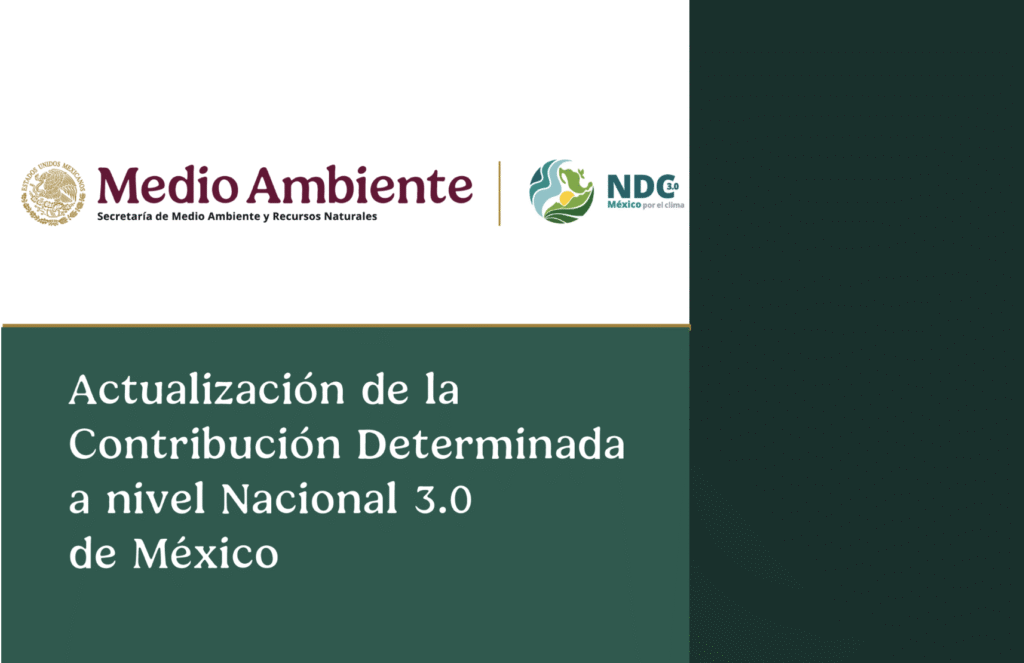Belém, 20 November 2025:- The Global Climate and Health Alliance (GCHA) today welcomed Mexico’s publication of its climate commitments – its Nationally Determined Contribution 3.0 (NDC 3.0), and its signing of the Common Position of Latin America and the Caribbean on Climate Change and Health.
The Common Position of Latin America and the Caribbean on Climate Change and Health is a landmark, region-wide declaration already endorsed by over 100 signatories, including health, civil society, academia, governmental and humanitarian organizations, youth organizations and more.
In a letter from Mexico’s Ministry of Environment and Natural Resources to GCHA, Mexico acknowledged the Common LAC Position on Climate Change and Health and expressed their desire to sign on to it, affirming that:
“Human and planetary health are intrinsically linked. We cannot have one without the other. Placing health at the centre of all climate action is essential to protect people and nature. We call on the Latin America and the Caribbean region to uphold the human rights to health and to a clean, healthy and sustainable environment for transformative climate action, present and future generations depend on it.”
“Mexico’s endorsement of the LAC Common Position underscores a growing global recognition that human and planetary health are inseparable”, said Dr Jeni Miller, Executive Director of the Global Climate and Health Alliance said: “This is the type of leadership the global community needs to protect both people and planet.”
Meanwhile, Mexico’s new Nationally Determined Contribution – NDC 3.0, published during COP30 makes clear that health is a cross-cutting priority, and that climate change poses serious health risks, especially for people facing multidimensional poverty and limited access to healthcare.
“Mexico’s support for the LAC Common Position strengthens a united regional voice calling for urgent climate action rooted in equity, rights, and public health”, said Milena Sergeeva, Latin America Liaison at the Global Climate and Health Alliance. “Mexico’s NDC 3.0 clearly reflects the realities of our region – where climate change deepens poverty, harms physical and mental health, and strains already limited health systems.This aligns with the consensus of health leaders around the region, conveyed in the LAC Common Position.”
“At COP30, Mexico’s endorsement of the LAC Common Position sends a powerful message: health must be central to all climate negotiations”, said Jess Beagley, Policy Lead at the Global Climate and Health Alliance. “Mexico’s NDC demonstrates how countries can embed health across adaptation, loss and damage, and mitigation, while ensuring gender equity and human-rights approaches. As governments negotiate a COP30 deal, Mexico’s stance has highlighted a clear path forward—climate ambition that safeguards health, strengthens resilience, and upholds the right to a clean, healthy, and sustainable environment for current and future generations.”
Mexico signaled in its letter that it plans to advance these priorities in international climate negotiations and coordinate regionally to strengthen the focus on health in climate action:
“..we will articulate the position of Mexico in climate negotiations, making sure that health is a key consideration in all the relevant tracks of climate negotiations and will coordinate positions with countries in the region to strengthen these key messages. We will furthermore participate in different events at COP30 to highlight the multiple health dimensions of critical climate action.”
The LAC position:
Developed through a participatory, multisectoral process, the Common Position outlines six strategic pillars: health protection, mitigation, adaptation, climate justice, leadership, and financing. Rooted in scientific evidence and local knowledge, equity considerations, and social determinants of health, the Position calls for bold, integrated climate action that puts people’s health at the center.
Mexico’s NDC 3.0
Mexico’s NDC links climate-related loss and damage- like resource shortages, disasters, pollution, and infrastructure failures – to physical and mental health impacts, emphasizing the need to integrate climate considerations into public health policy.
Mexico’s NDC states that health is a cross-cutting priority. The adaptation section calls for:
- A human-rights-based approach to monitor, prevent, and manage climate-related health issues by strengthening health-system resilience, surveillance, research, and local early-warning systems.
- Actions to improve productive systems and food security, reduce pesticide-related risks, and promote healthy, sustainable agrifood systems.
- Protection of critical infrastructure, including health facilities, from extreme weather.
In the loss and damage component, Mexico’s NDC says that health is central to rehabilitation, reconstruction, and relocation efforts after disasters, including public communication on climate-related health risks and ensuring social protection for those most affected.
A cross-cutting issues component in the NDC emphasizes gender and human-rights approaches, ensuring equitable access to health services for at-risk groups, including women, Indigenous peoples, Afro-descendant communities, children, youth, people with disabilities, LGBTQ+ people, and older persons. The mitigation component also stresses the health co-benefits of reducing greenhouse gas emissions.
Contact:
Dave Walsh, Communications Advisor, Global Climate and Health Alliance, [email protected], +34 691 826 764 (Available from 0630 CET)
About GCHA
The Global Climate and Health Alliance is a consortium of more than 200 health professional and health civil society organisations and networks from around the world addressing climate change. We are united by a shared vision of an equitable, sustainable future, in which the health impacts of climate change are minimised, and the health co-benefits of climate change mitigation are maximised.
Find out more: https://climateandhealthalliance.org/who-we-are/about/


